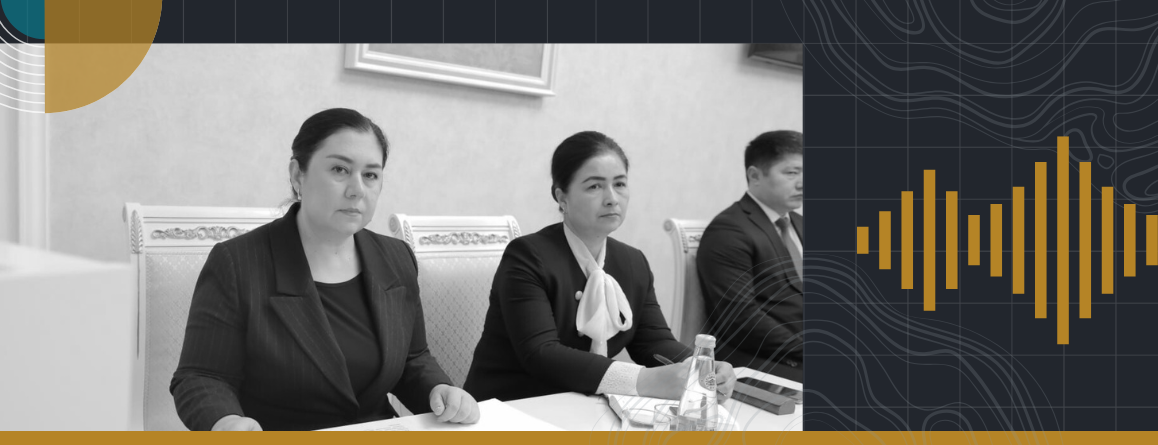On December 26, 2024, the Commission investigating the events that occurred in Karakalpakstan in July 2022 (hereafter Commission) headed by Uzbekistan’s Ombudswoman F. Eshmatova presented its report to the Parliament of Uzbekistan. On the same day, Freedom for Eurasia contacted the Ombudsman’s office to inquire about the full publication of the report. It was promised that the complete report would be posted on the Ombudsman’s website by the evening of December 26, 2024, but this has not yet happened. For now, we are providing information based on a news article published on gazeta.uz.
According to the news, the Commission successfully resolved over 600 citizen complaints. During visits to more than 50 government and non-governmental organizations, they conducted interviews with 590 employees and 334 former prisoners. The details regarding the specific employees interviewed and the offenses committed by the 334 prisoners were not provided.
The Commission also reported that out of 168 individuals arrested in connection with the events, 107 (including 2 women) were released back to their families. It remains unclear whether the charges against these individuals were dropped or if an amnesty was applied, or they were released under probationary supervision.
The Commission’s data shows that 943 people received a warning for their involvement in the events, 6135 were fined administratively, 2639 were subjected to administrative arrest, and 61 were convicted of criminal offenses. The events resulted in the deaths of 21 people, including 2 law enforcement officers, and injuries to 413 people, including 183 law enforcement officers.
The Commission asserts that the rights and legal interests of suspects, defendants, and detainees (including access to lawyers, medical care, and phone calls) were fully upheld. They claim that all judicial processes were open and transparent, and all individuals had the opportunity to appeal court decisions.
However, after two years of monitoring the situation with political prisoners and human rights in Karakalpakstan, Freedom for Eurasia notes that the rights and interests of suspects, defendants, and detainees were not fully protected. This is particularly true for Dauletmurat Tazhimuratov, who detailed the torture he endured after his detentions on July 1 and 4, 2022, and reported the deaths of his friends Ruslan Ibragimov and Madiyar Orazbayev due to torture. Both were picked up in their homes by law enforcement officers and returned dead. No investigation was launched into their deaths, no explanation from authorities was provided, no actions were taken to hold the responsible officers accountable. Additionally, the experts who concluded that Tazhimuratov incited violent takeover and separatism were not qualified linguists in the Karakalpak language, calling their competence into question—a fact ignored by the courts. Many defendants refused to speak openly in court, and their relatives indicated they were prohibited from contacting human rights organizations.
The Commission stated that to control the mass unrest and prevent the takeover of administrative buildings and strategic facilities, law enforcement used internationally practiced methods, such as water cannons, dye-spraying techniques, and special tear gas grenades. However, they did not mention the use of lethal firearms and explosives against the demonstrators, causing severe and lifethreatening wounds contradicting eyewitness accounts and death certificates indicating deaths from bullets and grenades. For example, Alisher Daribayev was fatally shot on July 2, 2022, near the “Svetlana” market in Nukus when he went out for groceries. After complaints from his father, Daribayev’s body was exhumed in September, 2022, but the forensic examination results are still pending.
The Uzbek authorities deny using firearms and explosives against the demonstrators and accuse the protesters of using these weapons. During their visits to Karakalpakstan, Freedom for Eurasia staff spoke with witnesses who confirmed that the military used firearms against the demonstrators, as evidenced by video footage from that day.
The Commission also mentioned that three officers from the Karakalpakstan Department of Internal Affairs were held criminally responsible, but no details were provided about the charges or the positions these individuals held at the time. Given the large number of civilians held accountable and the number of deaths, holding only three officers accountable seems more like a token gesture than a thorough investigation.
In conclusion, the Commission’s report on the events in Karakalpakstan from July 1-2, 2022, presents a mixed picture of accountability and justice. While the Commission claims to have resolved numerous citizen complaints and upheld the rights of detainees, significant discrepancies remain regarding the treatment of individuals involved in the protests, particularly concerning allegations of torture, extrajudicial killings, forced dissapearances, arbitrary detention and other abuses. The lack of transparency surrounding the circumstances of these deaths and the qualifications of experts involved in legal processes raises serious concerns about the integrity of the judicial proceedings. Furthermore, the acknowledgment of the use of international crowd control methods, juxtaposed against reports of lethal force, highlights a troubling disparity between official narratives and eyewitness accounts. The limited accountability of law enforcement officials, with only three officers facing charges amid widespread civilian repercussions, suggests a superficial approach to dealing with systemic issues of human rights abuses.
Overall, while the Commission’s findings mark an important step towards addressing the events in Karakalpakstan, the persistent violations and lack of accountability demand continued scrutiny and actionable reform to ensure justice for the victims and restore trust in the legal system. Additionally, it is essential for the full report to be released to the public so that the interested parties, international community and civil society may study its contents, assess the findings comprehensively, and apply pressure for meaningful reforms in Uzbekistan’s approach to human rights and governance.
